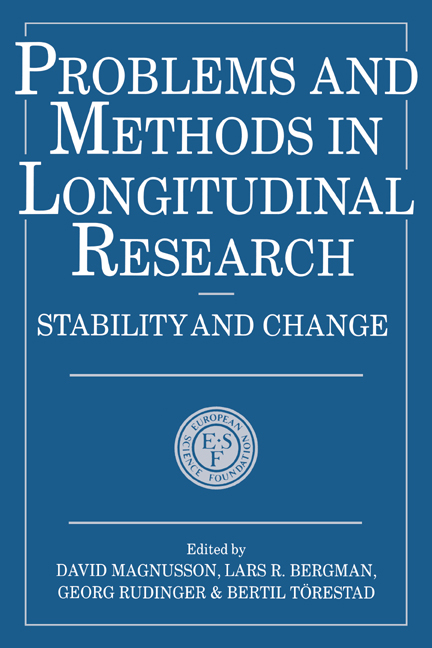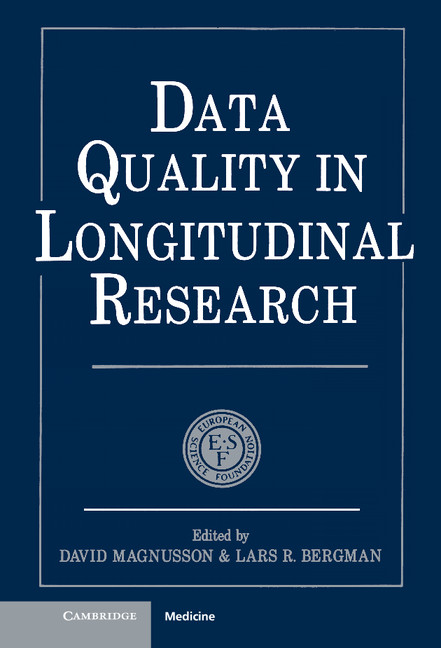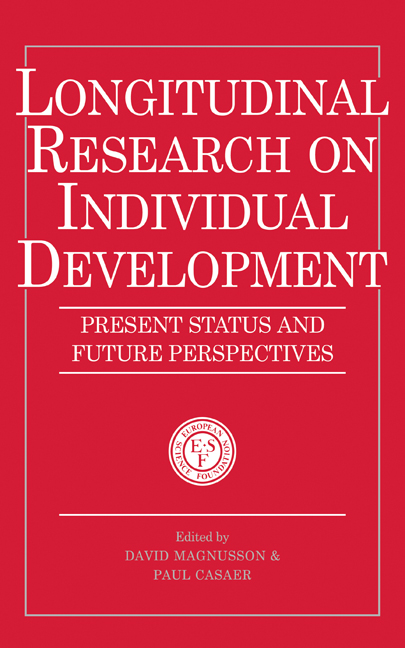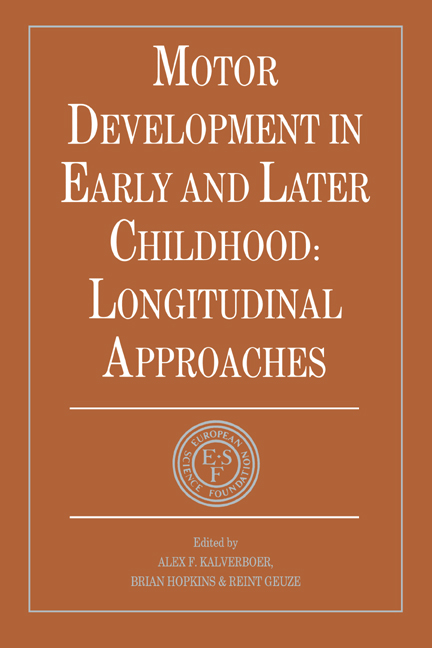Problems and Methods in Longitudinal Research
This volume focuses on methods of data treatment, emphasising the importance of careful matching of methodology to the substantive problem under consideration. It deals particularly with concepts of stability and change which are central to personality and developmental research. Contributions to this volume explore the methodology and scope of life span studies in a varity of contexts, including intellectual and cognitive development, transitions such as that from childhood to early adult life, social mobility, behavioural genetics, and psychological disorder, particularly depression. A valuable reference for a wide range of interests in developmental psychology, social and behavioural science, psychiatry, epidemiology and statistics.
- Published in association with the European Science Foundation
- Longitudinal studies are particularly relevant to psychiatrists, psychologists and epidemiologists
- An analysis of data treatment methodology of interest to statisticians
Reviews & endorsements
"...provides good examples of a wide variety of methods, ranging in degree of complexity, for analyzing longitudinal data; the authors represent many disciplines and are international experts in longitudinal methods; and their applications cover areas as diverse as cognition and intelligence, self and personality, health status, and even social mobility...raises sociologists' awareness of the individual differences perspective favored in many other disciplines...will appeal to scholars from many disciplines who have specialized interests in individual development over time. It is also a fine volume for sociologists who want to learn more about the ways in which researchers in the individual-differences tradition approach individual analyses." Richard A. Setterson, Jr. & Thomas D. Cook, Contemporary Sociology
"...One finds in the 15 chapters both quantitative and qualitative procedures appropriate for questions on several levels of analysis. Examples are provided from numerous fields. The issues are critical both to planning and successful execution so the content of this volume will be useful for a long time." Perceptual and Motor Skills
Product details
May 1994Paperback
9780521467322
368 pages
227 × 152 × 20 mm
0.534kg
61 b/w illus. 69 tables
Available
Table of Contents
- 1. Studying individual development: problems and method
- 2. Modeling individual and average human growth data from childhood to adulthood
- 3. Intraindividual variability in older adults' depression scores: some implications for developmental theory and longitudinal research
- 4. Now you see it, now you don't - some considerations on multiple regression
- 5. Differential development of health in a life-span perspective
- 6. Assessing of change in a cohort-longitudinal study with hierarchical data
- 7. Statistical and conceptual models of 'turning points' in developmental processes
- 8. Qualitative analysis of individual differences in intraindividual change: examples from cognitive development
- 9. Application of correspondence analysis to a longitudinal study of cognitive development
- 10. Event history models in social mobility research
- 11. Behavioural genetic concepts in longitudinal analyses
- 12. Genetic and environmental factors in a developmental perspective
- 13. Structural equation models for studying intellectual development
- 14. Longitudinal studies for discrete data based on latent structure models
- 15. Stability and change in patterns of extrinsic adjustment problems.















